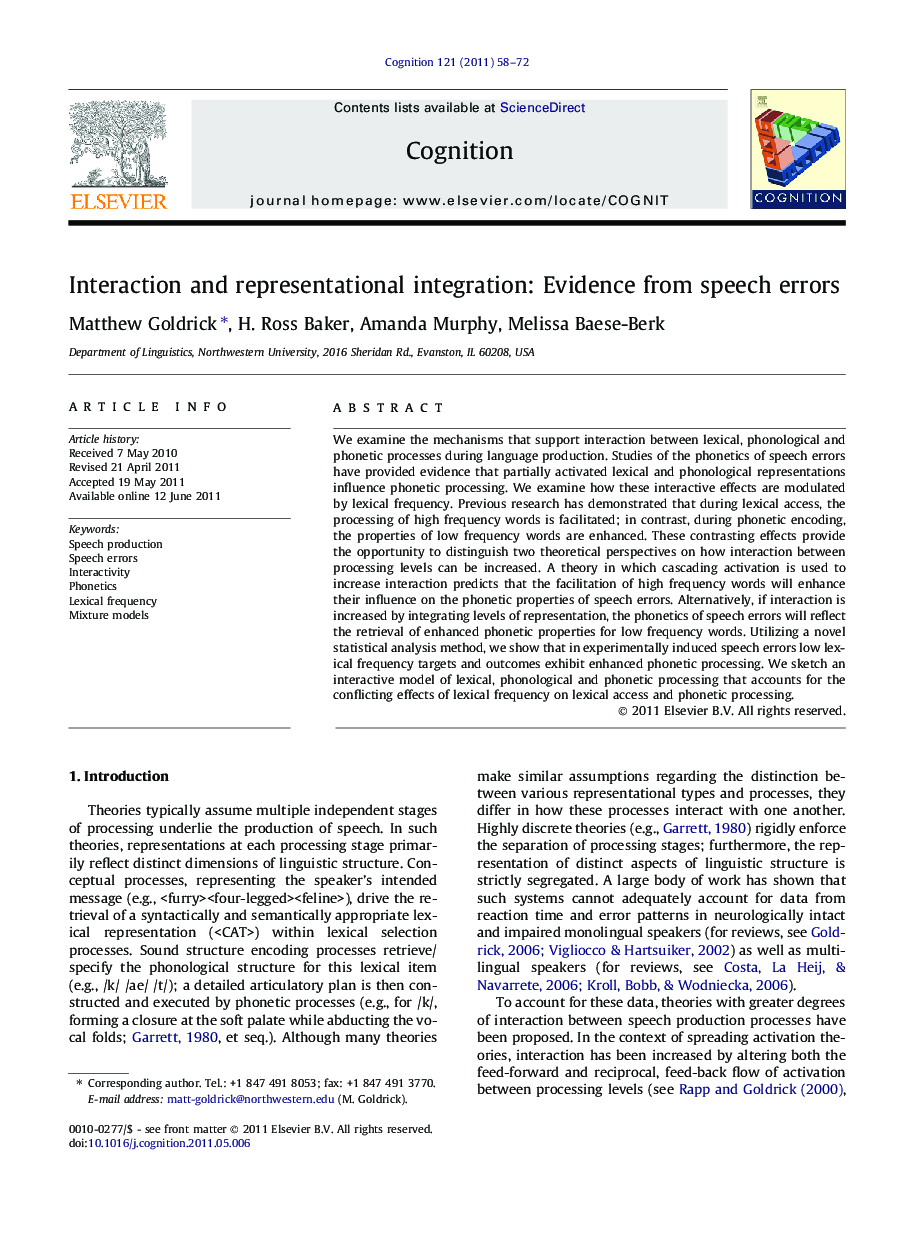| Article ID | Journal | Published Year | Pages | File Type |
|---|---|---|---|---|
| 926473 | Cognition | 2011 | 15 Pages |
We examine the mechanisms that support interaction between lexical, phonological and phonetic processes during language production. Studies of the phonetics of speech errors have provided evidence that partially activated lexical and phonological representations influence phonetic processing. We examine how these interactive effects are modulated by lexical frequency. Previous research has demonstrated that during lexical access, the processing of high frequency words is facilitated; in contrast, during phonetic encoding, the properties of low frequency words are enhanced. These contrasting effects provide the opportunity to distinguish two theoretical perspectives on how interaction between processing levels can be increased. A theory in which cascading activation is used to increase interaction predicts that the facilitation of high frequency words will enhance their influence on the phonetic properties of speech errors. Alternatively, if interaction is increased by integrating levels of representation, the phonetics of speech errors will reflect the retrieval of enhanced phonetic properties for low frequency words. Utilizing a novel statistical analysis method, we show that in experimentally induced speech errors low lexical frequency targets and outcomes exhibit enhanced phonetic processing. We sketch an interactive model of lexical, phonological and phonetic processing that accounts for the conflicting effects of lexical frequency on lexical access and phonetic processing.
